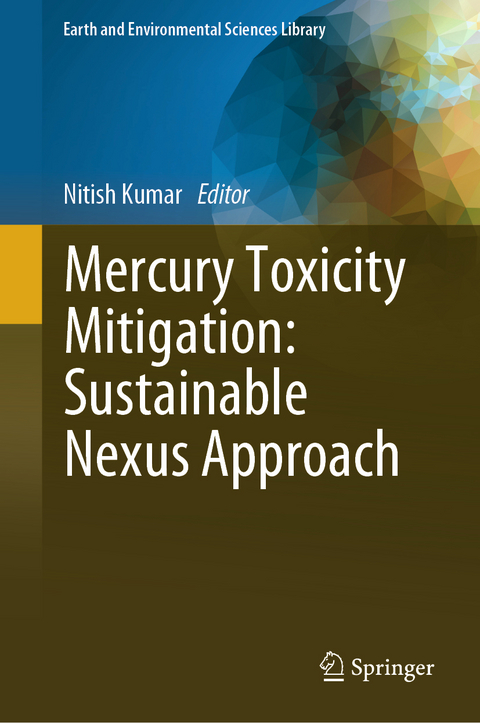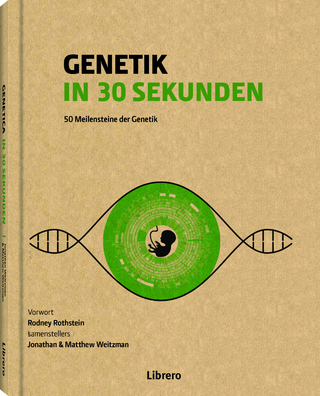
Mercury Toxicity Mitigation: Sustainable Nexus Approach
Springer International Publishing (Verlag)
978-3-031-48816-0 (ISBN)
Mercury is a naturally occurring element that is toxic in nature. According to the US Environmental Protection Agency, the safe limit of mercury ion in drinking water is 10 nM to avoid the serious health problems to humans. Mercury is a pollutant of global concern. Both anthropogenic activities and natural processes cause its release into different spheres of the environment resulting in severe adverse impacts. Increased anthropogenic discharge of mercury leads to disturbance in its natural biogeochemical cycle which results in to unenviable diseases and hazardous health effects.
This book will provide state-of-the-art information to the graduate students training in toxicology, risk assessors, researchers and medical providers at large. Many monographs, book chapters, contemporary reviews, and peer reviewed articles about mercury health impact are also available worldwide. However, there is no complete understanding available on toxicological studies of mercury, which coversthe broader spectrum of findings that range from sources of exposure to mercury toxicity as well as its remediation strategies. It is aimed to bring the readers updated information about the sources of mercury contamination, and its impact on human health and on prospective mitigation strategies through multi-disciplinary approaches.
The book contains three sections. First section describes the different sources and distribution of mercury in the environment. Second section explains the health risks linked to mercury poisoning. Third section addresses sustainable mercury toxicity mitigation strategies through multi-disciplinary approaches.
The key topic of this book will cover following:
-Source and distribution of mercury in the environment
-Effects and responses of mercury toxicity in plants
- Health risk linked to mercury poisoning
- Sustainable mercury toxicity mitigation strategies
This book is a valuable resource to students, academics, researchers, and environmental professionals doing field work on mercury contamination throughout the world.
lt;p>Dr. Nitish Kumar is a senior Assistant Professor at the Department of Biotechnology, Central University of South Bihar, Gaya, Bihar, India. Dr. Kumar completed his doctoral research at the Council of Scientific & Industrial Research-Central Salt & Marine Chemicals Research Institute, Bhavnagar, Gujarat, India. He has more than 12 years of research and teaching experience in the field of plant and microbial biotechnology, and heavy metal bioremediation. . He has published more than 70 research articles in leading international and national journals, more than 20 book chapters and 7 books with Springer and Taylor & Francis. Dr. Kumar is a recipient of the Young Scientist Award from the Science and Engineering Research Board (SERB) in 2014 . He has received many awards/fellowships/projects from various organizations, for example, the CSIR, DBT, ICAR and SERB-DST, BRNS-BARC, among others. He is an active reviewer for journals, including Biotechnology Reports, Aquatic Botany, Industrial Crops and Products, PLoS One, Plant Biochemistry and Biotechnology, and 3Biotech. He also serves as an associate editor of the journal Gene (Elsevier). He has H-Index 22 and i10-Index 30 as per google scholar database 2022.
Chapter 1. Introduction to "Salinity Resilience and Sustainable Crop Production under Climate Change.- Chapter 2. Salinity and its Impact on Sustainable Crop Production.- Chapter 3. Salinity and its Impact on Sustainable Crop Production.- Chapter 4. Fundamentals of Crop Resilience to Salinity, Plant Traits and Selection Criteria.- Chapter 5. Genetic Variability and Genetic Resources for Salinity Resilience.- Chapter 6. Genetic Analysis of Salinity Tolerance and Relevant Traits in Field Crops.- Chapter 7. Breeding Efforts and Biotechnology.- Chapter 9. Mitigation Options towards Sustainability via Agricultural Practices.- Chapter 10. Techniques and Measurements of Assessing Genotypes Update, General Conclusions and Recommendations of " Salinity Resilience and Sustainable Crop Production under Climate Change" for Salinity tolerance.
| Erscheinungsdatum | 15.02.2024 |
|---|---|
| Reihe/Serie | Earth and Environmental Sciences Library |
| Zusatzinfo | XI, 281 p. 31 illus., 29 illus. in color. |
| Verlagsort | Cham |
| Sprache | englisch |
| Maße | 155 x 235 mm |
| Gewicht | 619 g |
| Themenwelt | Naturwissenschaften ► Biologie ► Genetik / Molekularbiologie |
| Technik ► Umwelttechnik / Biotechnologie | |
| Schlagworte | bioremediation • Biotechnological approaches for mercury remediation • Health Risk Linked to Mercury Poisoning • Nano Adsorbents • Phytoremediation • Source and Distribution of Mercury |
| ISBN-10 | 3-031-48816-4 / 3031488164 |
| ISBN-13 | 978-3-031-48816-0 / 9783031488160 |
| Zustand | Neuware |
| Haben Sie eine Frage zum Produkt? |
aus dem Bereich


